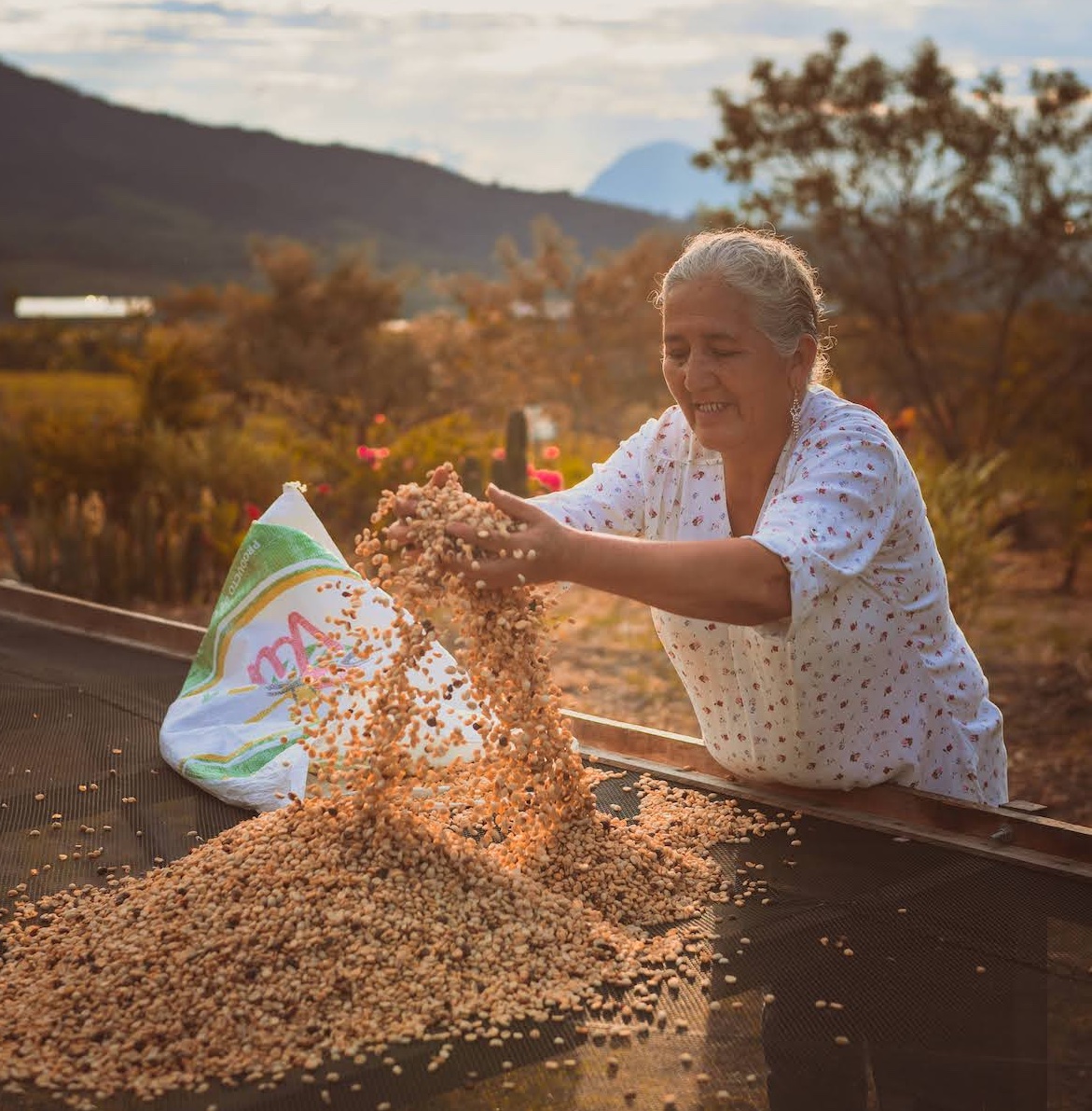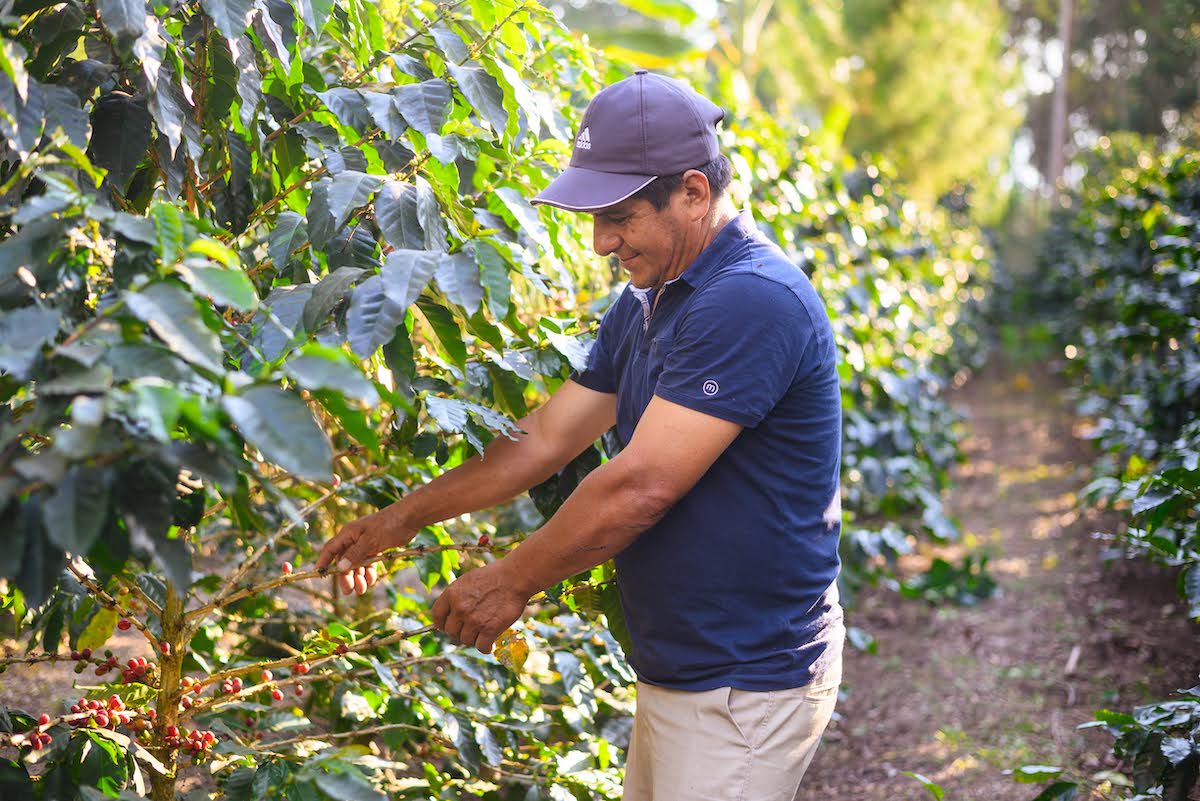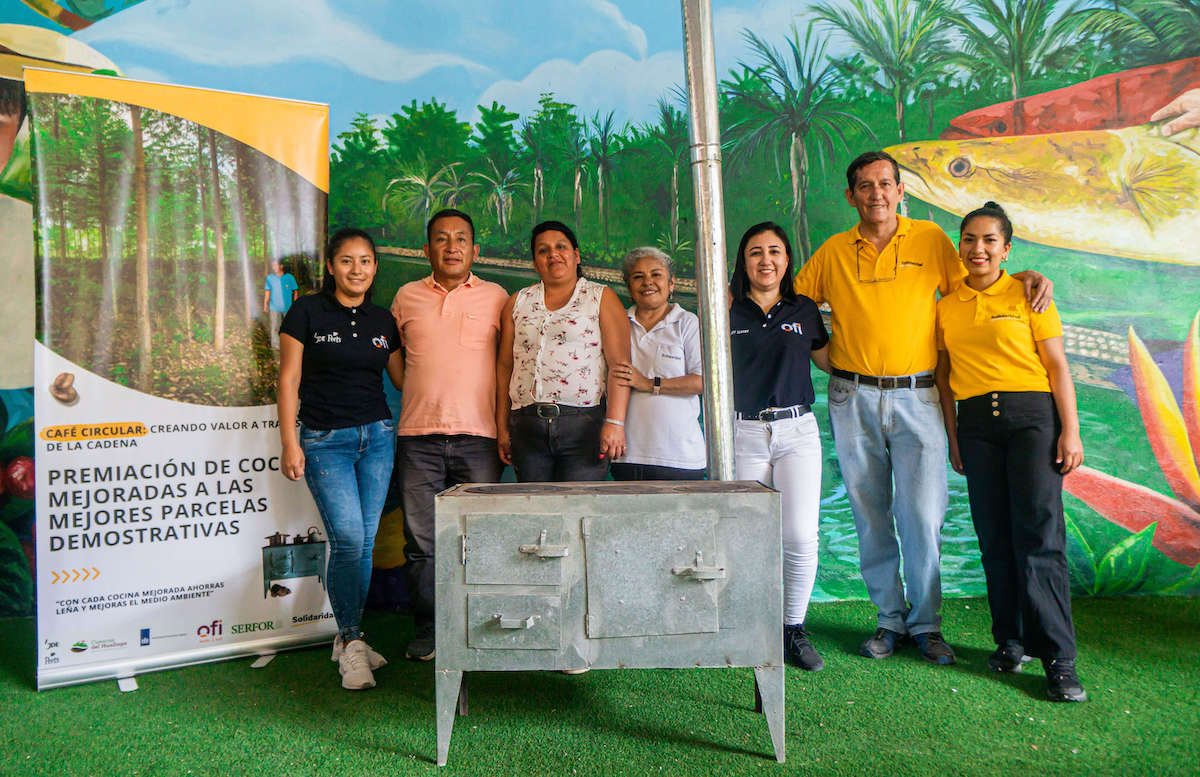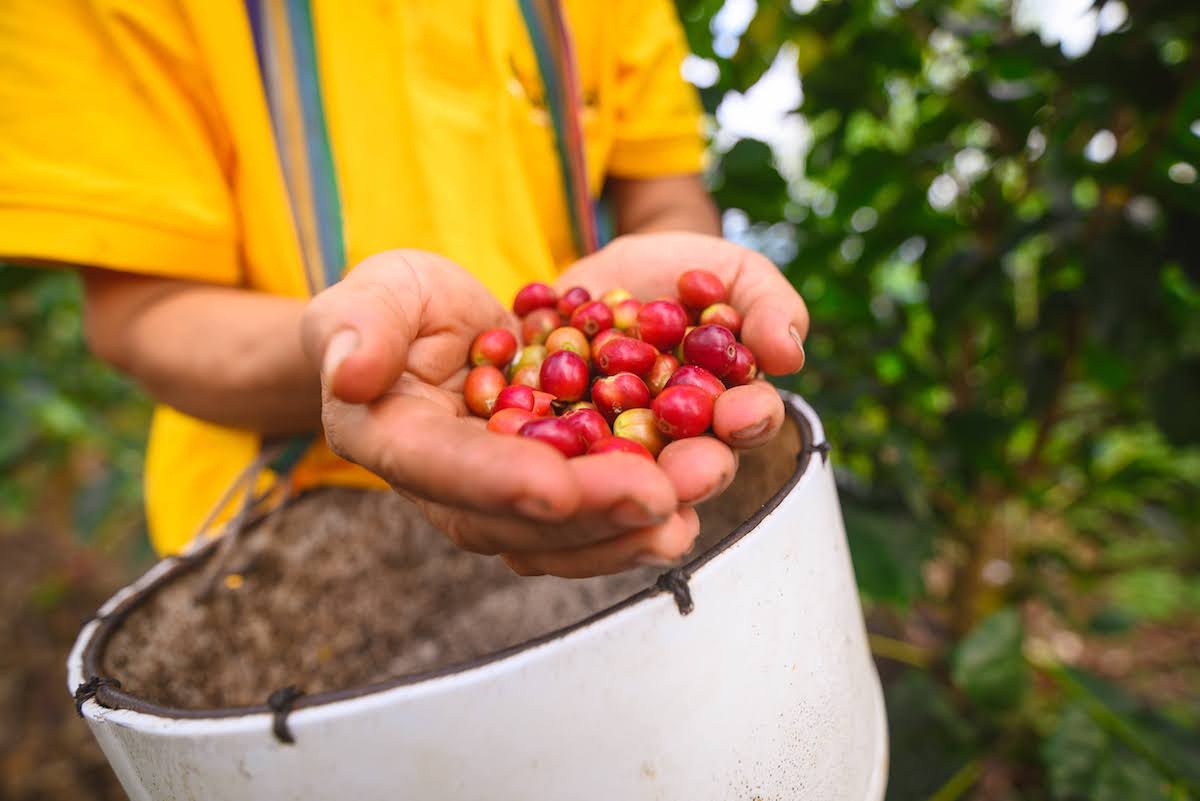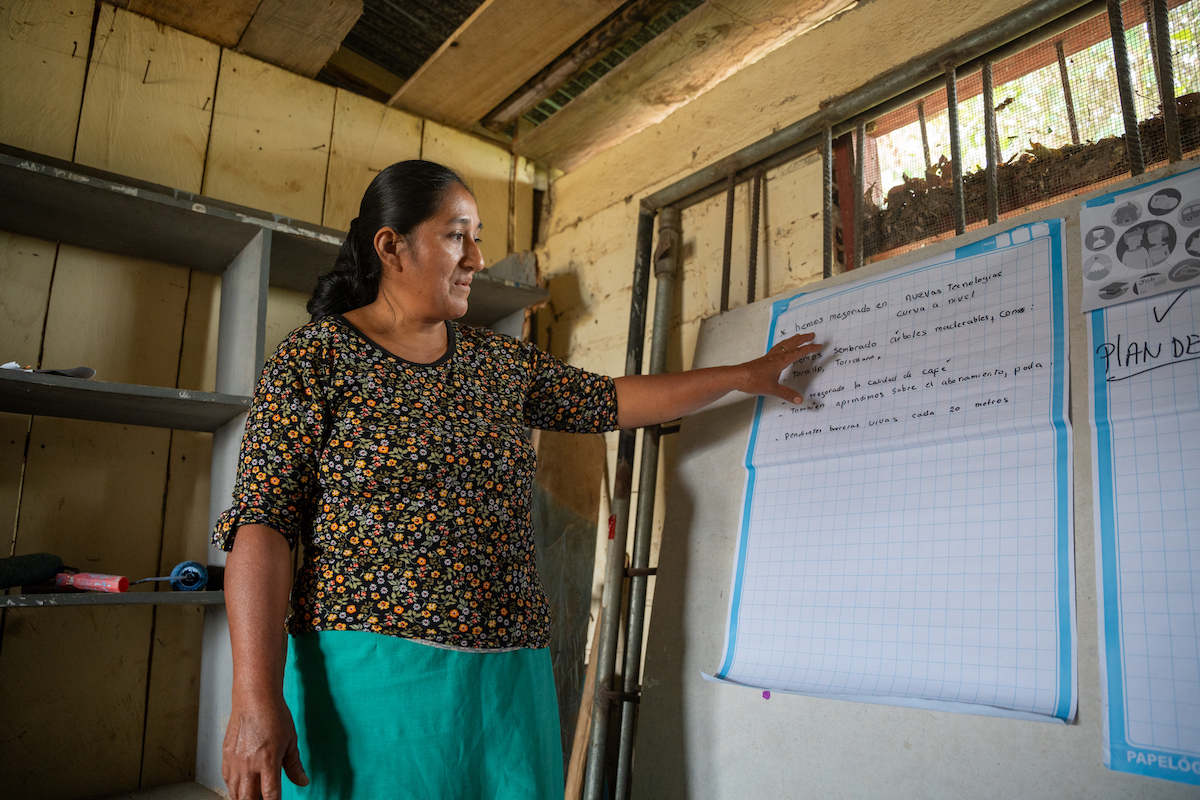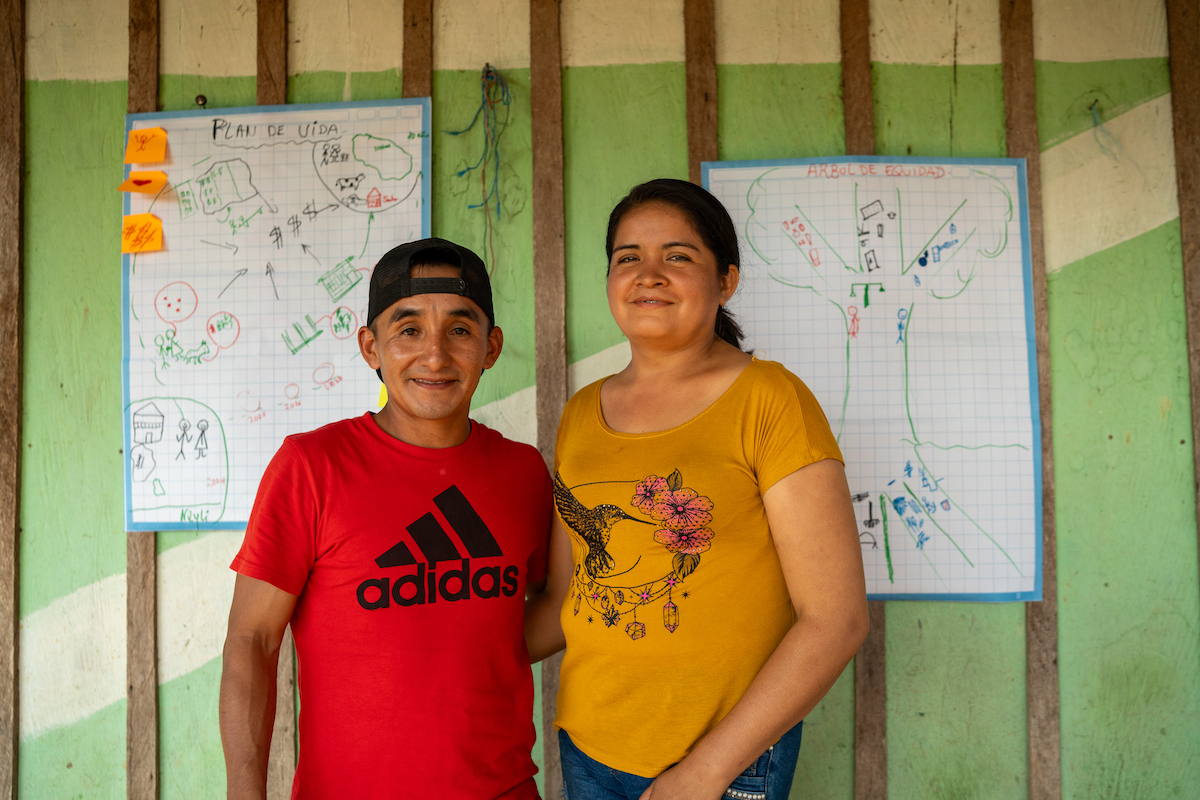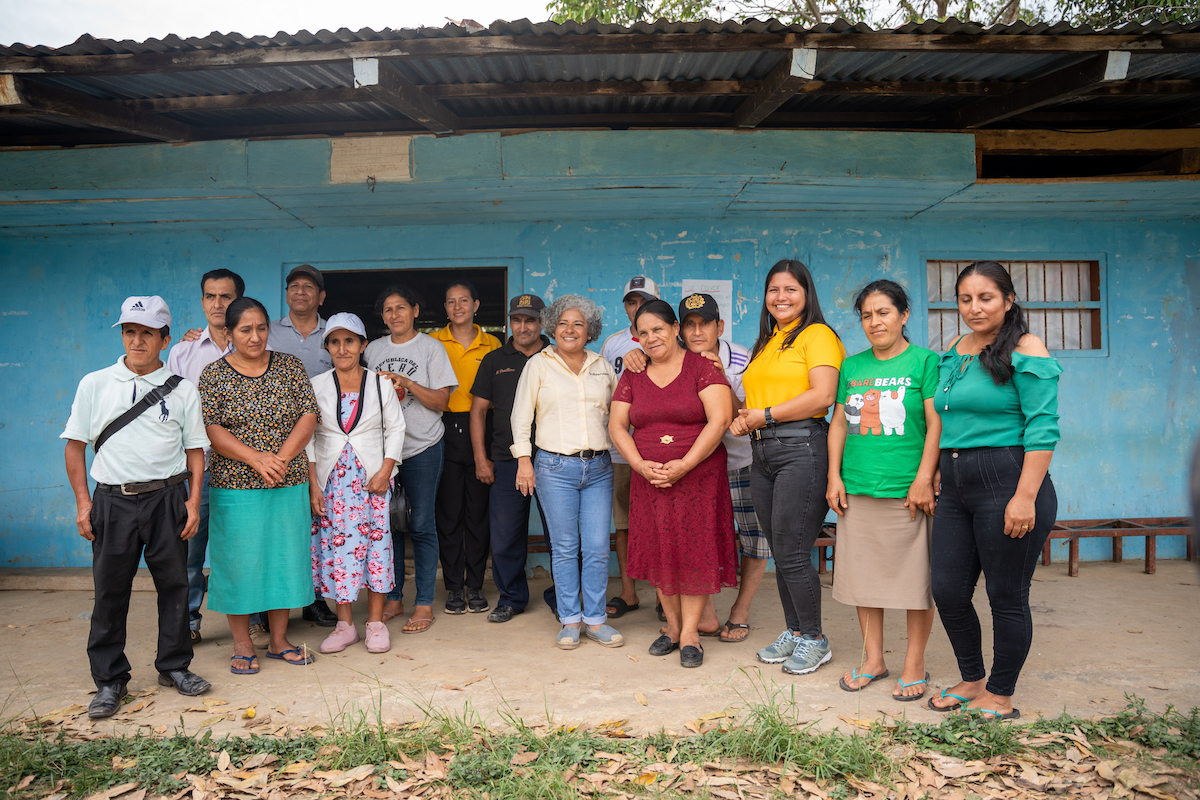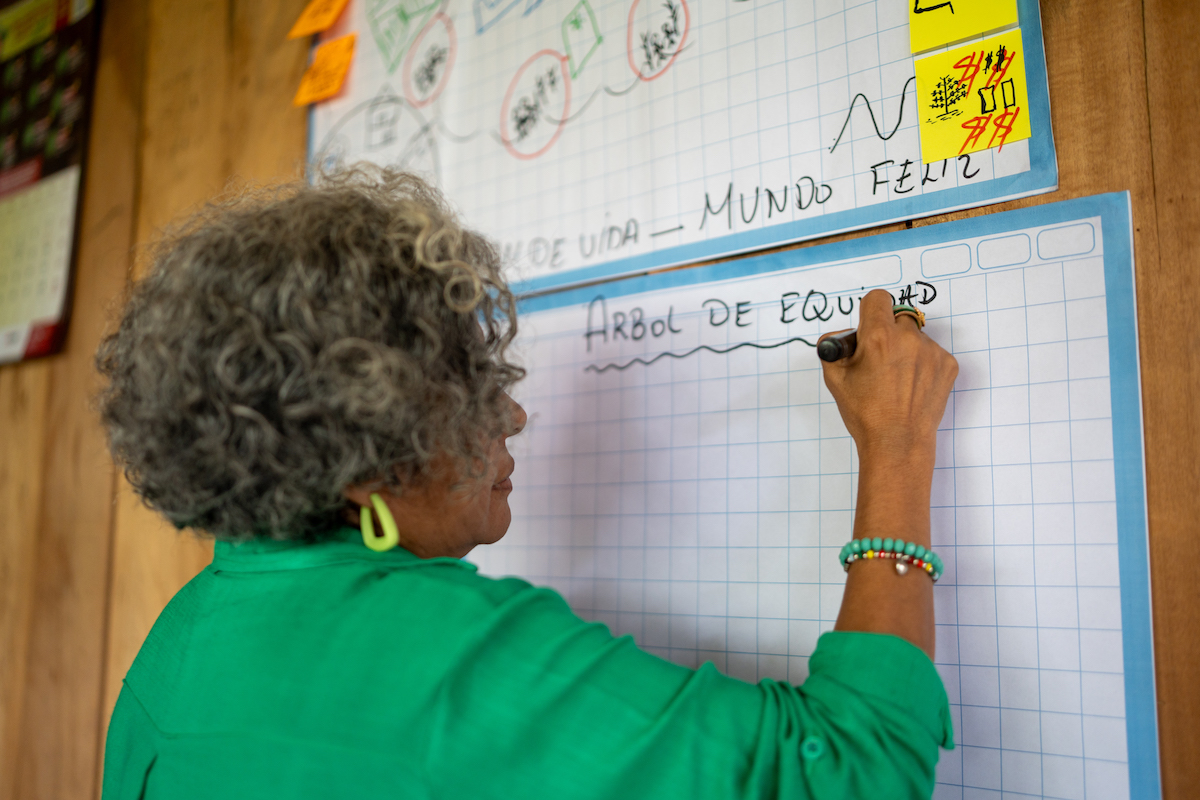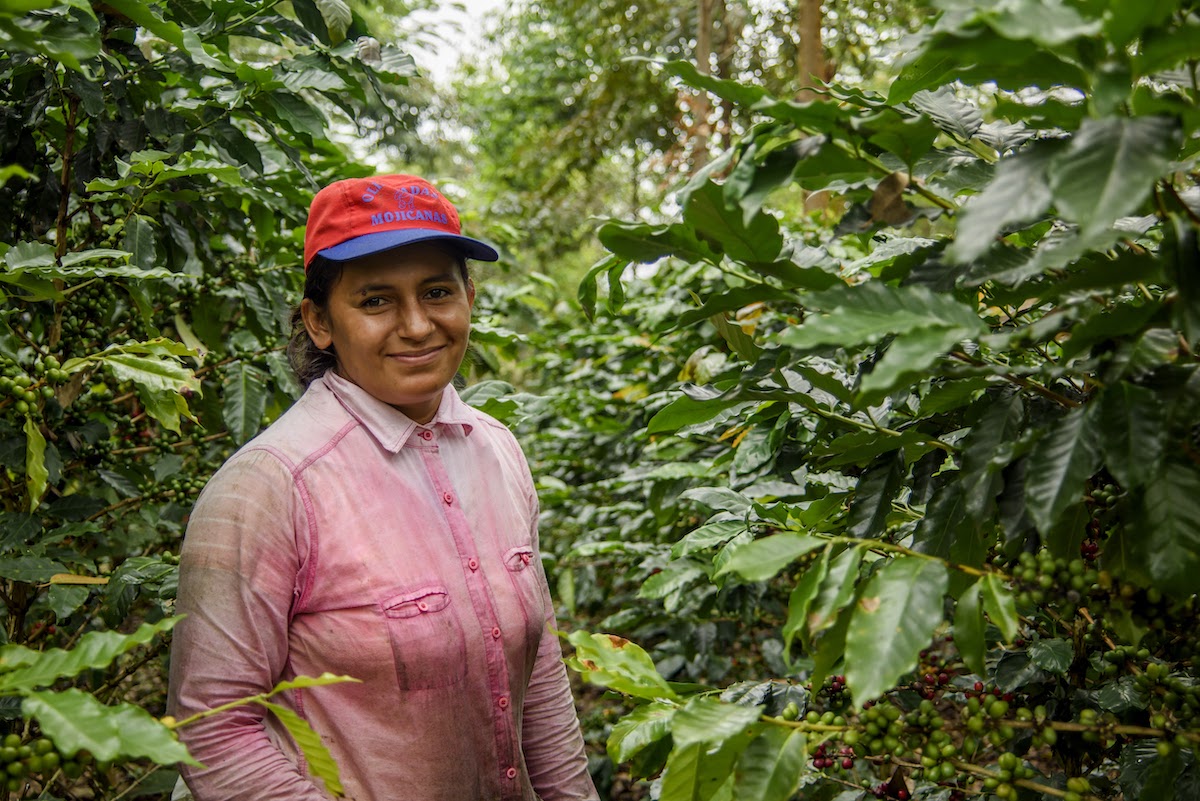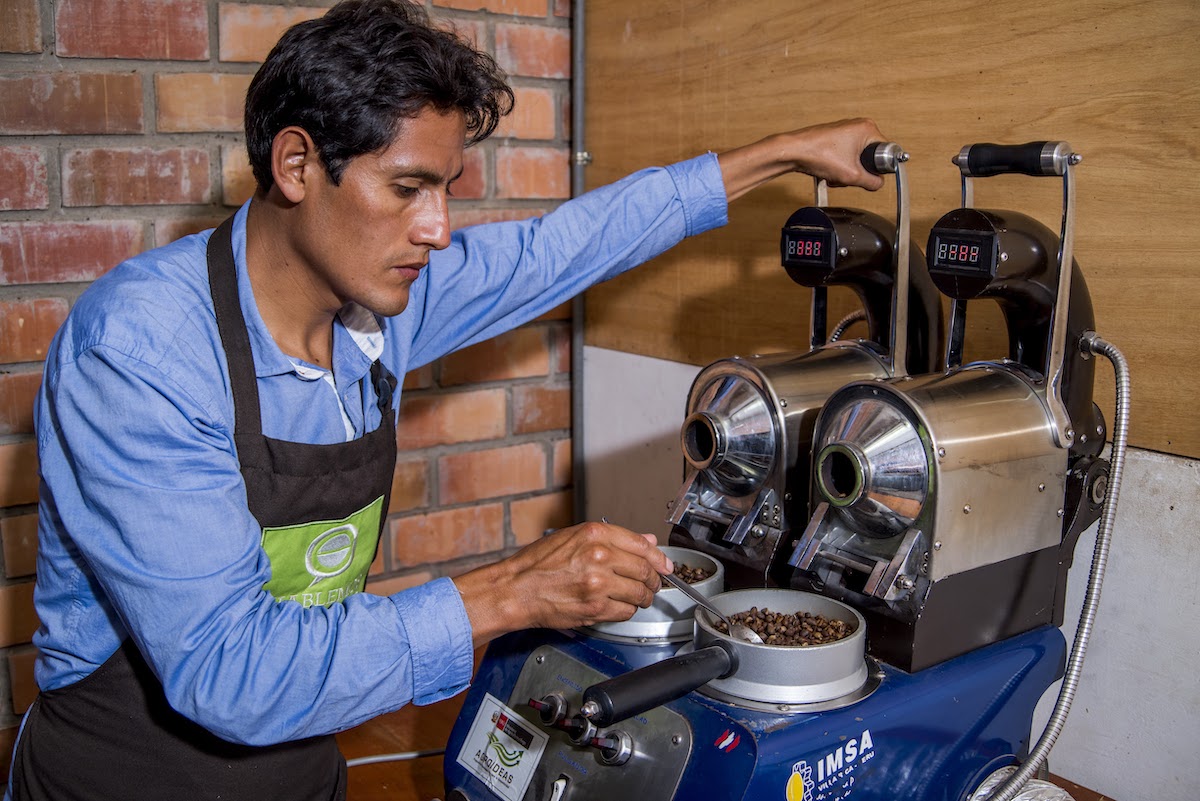For generations, coffee has been a key source of income for small-scale farmers in the Peruvian Amazon region of San Martin. Over time coffee has become one of Peru’s main exports with green coffee exports totaling €699 million Euros in 2023, according to the Ministry of Agrarian Development and Irrigation (MIDAGRI).
To achieve these volumes, producers have typically utilized a linear production model that relies heavily on external inputs that generate waste and pollute both water and the soil. As the effects of climate change increase, this linear, extractive model is becoming less feasible and more costly. Finding new ways to utilize waste and regenerate soils can reduce degradation and provide access to markets that value sustainability.
The Café Circular initiative was developed in 2019 to provide coffee families with technologies and knowledge to transition to a production model that utilizes innovative waste management practices and circular practices. The project emerged from a public-private partnership between Netherlands’ Enterprise Agency (RVO), Jacobs Douwe Egberts (JDE) and Olam Food Ingredients (OFI), producer association Cuencas del Huallaga, the Peruvian Forestry and Wildlife Service (SERFOR), and Solidaridad.
Over the course of five years, families have seen the benefits of applying practices that include composting, agroforestry and wastewater treatment.
Thinking circular: A sustainable and profitable approach
The circular approach to agriculture is based on the reduction and reuse of waste, and the regeneration of the natural environment through agroforestry systems. For example, waste generated during coffee production, such as pulp and honey water, can be transformed into valuable resources like biofuels and biofertilizers. These products not only improve soil quality, but they also have generated new sources of income for more than 1,120 producers who efficiently process this type of waste from coffee processing.
We are demonstrating that the circular economy in coffee is not only possible, but profitable. We have converted waste that was previously polluting into products that improve soil fertility and reduce costs.
Ezio Varese, Manager of Solidaridad’s coffee programme in Peru
Environmental and economic impact
Since the project began:
- 1,204 bio orchards were created.
- Agroforestry systems were adopted to mitigate soil degradation and restore previously affected areas.
- A pilot project was implemented to transform coffee husks into pellets that serve as alternative fuel for prototype stoves. This can reduce dependence on firewood, leading to a decrease in deforestation.
- By transforming coffee waste, such as pulp and honey water into biofertilizers and biofuels, producers have reduced their production costs by 65 percent.
Furthermore, the efficient use of coffee waste inputs has improved soil quality, increased crop yields and generated new sources of income (estimated at an additional 20 percent increase). The circular economy is not only environmentally sustainable, it is also economically profitable.
Gender equality on the farm
Another key aspect of the Café Circular project were the steps taken to include women in farm management. Under the GALS (Gender Action and Learning System) methodology, 2,674 families participated in awareness-raising and training workshops on equitable farm management.
This strategy helped 65 percent of the families identify gaps in their household and productive level. Of this group, between 8 to 10 percent of the families are taking action to strengthen the role of women in coffee cultivation and foster their leadership potential. This has resulted in greater family cohesion, and improved efficiency in resource management, while promoting greater economic and social sustainability in the communities involved.
The Vice Governor of San Martin, Olguita Celis, attended the closing event for the project and highlighted the importance of these achievements.
“It is wonderful to see how farmers have adopted new alternatives to improve their cultivation and quality of life in a sustainable way. Our dream is that the entire region implements productive projects like this, which bring economic, sustainable and equitable development.”
What the future holds
Will Pauffley, the project’s coordinator, noted that the successes that have been achieved over the past five years are just the beginning: “We have integrated circular practices into all stages of coffee production. The next step is to scale these innovations and ensure that more regions can benefit from this approach.”
The Café Circular project has demonstrated that it is possible to improve the sustainability of coffee cultivation in Peru. By adopting circular economy principles like composting and agroforestry, farmers have enhanced soil health, conserved water and increased yields. It has also reinforced the importance of collaboration among public and private institutions to face the challenges to sustainable coffee production. The strategic alliance has created greater climate resilience and a positive economic impact for thousands of coffee-growing families.
Now we don’t waste anything. The pulp that previously polluted rivers is now converted into fertilizer that improves our lands. We have learned that coffee can be much more than a simple crop.
Abilio Sallago, coffee producer from San Martin and project participant

